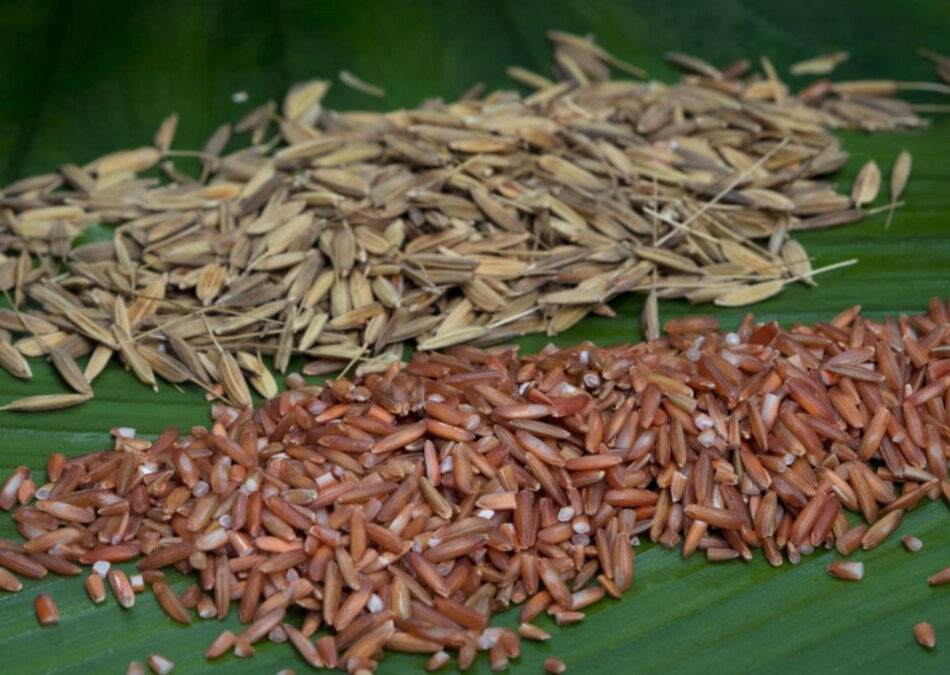A new Cooperative Research Centre for Developing Northern Australia (CRCNA) project will lay the foundation for a northern Australian rice sector with the potential to produce more than one million tonnes of specialty rice annually.
CRCNA Chair Sheriden Morris announced the CRCNA’s latest $505,000 research collaboration with project participants the Queensland Alliance for Agriculture and Food Innovation (QAAFI) at the University of Queensland (UQ), Charles Darwin University, Western Australia’s Department of Primary Industries and Regional Development (WA DPIRD), Queensland’s Department of Agriculture and Fisheries (DAF), Rice Research Australia (SunRice) Olive Vale Pastoral and Savannah Ag Consulting at James Cook University’s Cairns Institute today.
Ms Morris said the project was the first of its kind undertaken in Australia.
“This project will take a broad look at the whole northern Australian rice supply chain and really zero in on what the opportunities for development are, given the current operational environment, and what can be done to improve this environment to facilitate growth across the industry.”
“We expect this body of work will deliver an action plan for the industry and inform the CRCNA’s strategic investment and research planning into the future,” Ms Morris said.
QAAFI’s Professor Robert Henry said northern Australia is well-placed to capitalise on emerging markets for speciality wild rice products and this research will help identify where further efforts and investment is needed.
“This region has significant potential to meet growing demand for high quality rice products, but what we need is to bring all of the information and research together and identify the right combination of market, varieties, production methods, transportation and processing requirements to develop and deliver a cohesive long-term action plan for the industry.”
The 18-month research project will evaluate three different northern rice industry scenarios including examining the production of wild rice, the production of a unique northern Australian rice variety and the potential for commercial use of genes from Australian wild rice to support the breeding of rice for global production.
Professor Henry said the wild rice industry could be an attractive opportunity for traditional owner-led enterprises, while developing a unique northern Australia rice variety could tap into consumer demand for high-value foods.
“We estimate by increasing wild rice production to around 100 tonnes a year, the industry would be worth around $10 million per year within 5 years, while a ‘North Australian Rice’ grade would be worth $50 million annually within seven years.”
Charles Darwin University Senior Lecturer in Plant Science Dr Sean Bellairs said the region’s native wild rice species are overlooked in the current agricultural system.
“The Canadian wild rice industry shows that we can develop our unique Australian native rices into a globally significant product in a way that supports many Indigenous and other enterprises.”
The situational analysis project will include desktop and literature reviews drawing on current industry Strategic Plans with research staff based in Darwin, Kununurra, Brisbane and Cairns.
An Industry Development Group will be established during the project and is expected to continue progressing the development of a northern rice agenda even after the project wraps up mid-2020.
Queensland Minister for Agricultural Industry Development and Fisheries Mark Furner said north Queensland was a major centre for horticulture, supplying a significant percentage of the nation’s fruit and vegetables.
“A thriving local rice industry would be a welcome addition to our agricultural output,” Minister Furner said.
The CRCNA’s northern Australia rice industry situational analysis project is one of eight industry situational analyses funded by the CRCNA in 2017/18. Other industries the CRCNA will examine as part of its commitment to informing broader discussions on further policy, investment, R & D for Ministerial Forum consideration include the aquaculture, forestry, cropping, horticulture, bush foods, beef, health and infrastructure and communication sectors.
Media enquiries
Carla Keith, CRCNA Communications Manager


